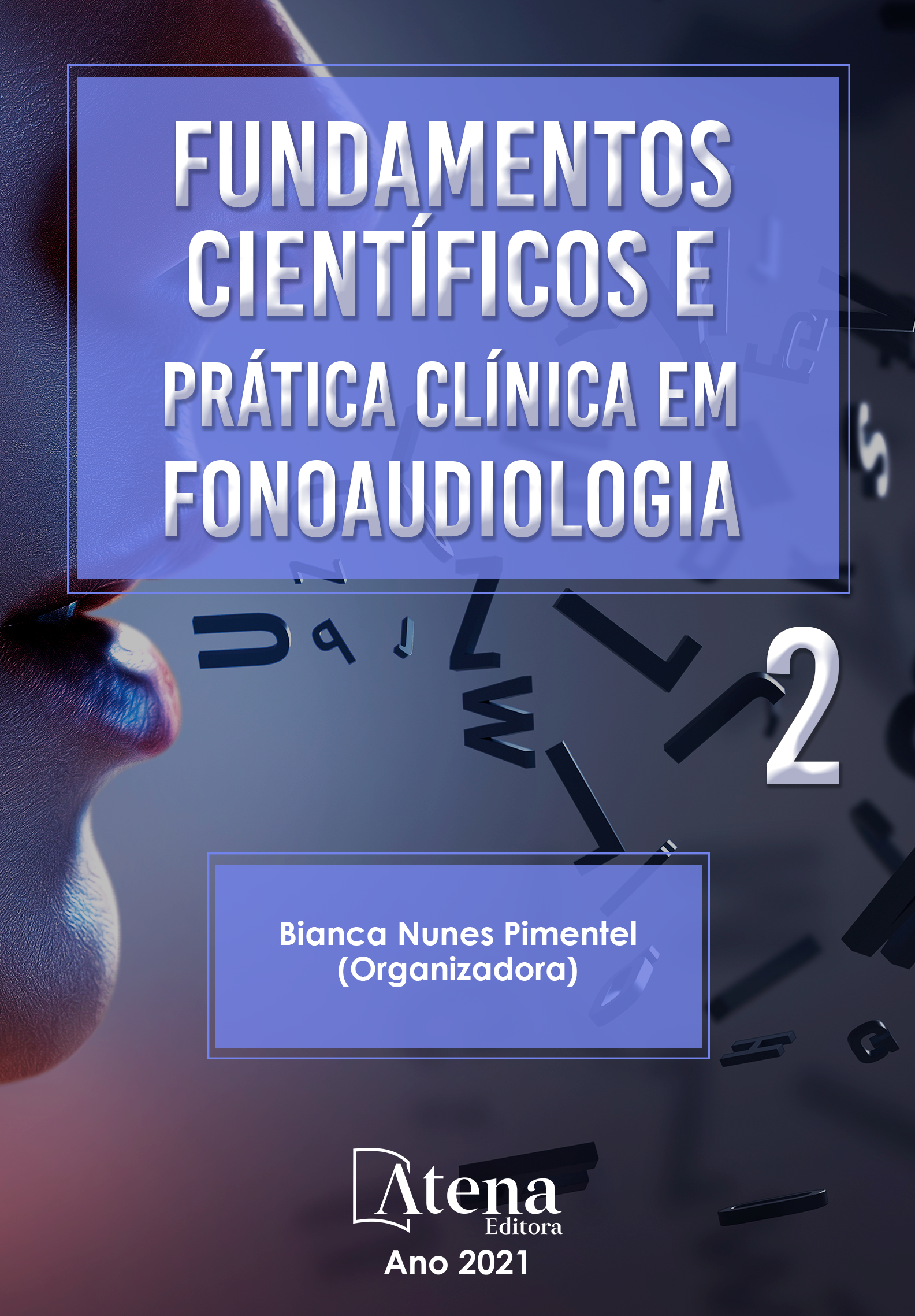
JOVENS EDUCADORES: PROTAGONISMO JUVENIL EM AÇÕES EDUCATIVAS EM SAÚDE AUDITIVA.
INTRODUÇÃO: Dangerous Decibels® é um programa de promoção de saúde a auditiva para crianças e adolescentes com objetivo de prevenir perdas auditivas e zumbido provocado por exposição a sons intensos. O uso do programa Dangerous Decibels® por adolescentes é uma estratégia promissora em saúde auditiva, pois uma vez desenvolvidas entre pares, facilita o entendimento e o aprendizado dos conhecimentos pelos colegas que participam da intervenção. OBJETIVO: Avaliar a intervenção educativa em saúde auditiva realizada por adolescentes educadores do programa Dangerous Decibels Brasil (DDB). MÉTODO: Foram capacitados pelo Programa DDB três adolescentes (um do sexo masculino e dois do sexo feminino), estudantes do ensino médio profissionalizante para que, sob supervisão de uma profissional da saúde (pesquisadora), aplicassem o treinamento em sala de aula do programa Dangerous Decibels a seus pares, também alunos do ensino fundamental e médio profissionalizante de um colégio estadual do Paraná. RESULTADOS: Participaram do treinamento em sala de aula ministrado pelos adolescentes educadores DDB, 143 pares, alunos do mesmo colégio estadual. Ocorreram diferenças significavas antes e após a intervenção, todas com p<0,05. Sobre o conhecimento dos participantes em relação aos hábitos que podem prejudicar a audição, antes da intervenção, 58% afirmou que o uso de fones de ouvido e MP3 players podem prejudicar a audição. Após a intervenção, 93% afirmou isso. O mesmo ocorreu com frequentar shows (antes 53,8% - após 90,2%). Em relação a estratégias para proteger-se dos sons altos: afastar-se de sons altos (antes 75,5% – após 91,6%), utilizar protetores auriculares (antes 19,6% - após 95,8%), passar menos tempo próximo a sons intensos (antes 65,7% - após 91,6%). Sobre o prejuízo acarretado por sons altos: entender o que dito em um grupo (antes 23,8% - após 60,1%), conseguir um emprego (antes 19,6% - após 83,2%) e entender o que é dito em sala de aula (antes 7,7% - após 67,8%). Antes da intervenção, 63,6% dos participantes afirmaram que sons altos danificam as pequenas células do ouvido e após a intervenção, 95,1% tinham esse conhecimento. CONCLUSÃO: A intervenção em saúde auditiva realizada pelos adolescentes educadores DDB à seus pares demonstrou-se uma estratégia efetiva para transmissão de conhecimentos relacionados ao impacto negativo da exposição aos sons altos para a audição, bem como às melhores estratégias que podem ser utilizadas para protegerem-se. O protagonismo juvenil aflora na escola e produz mudanças positivas para a saúde não apenas dos adolescentes, como também de suas famílias, pois os mesmos atuam como fonte transmissora de conhecimento.
JOVENS EDUCADORES: PROTAGONISMO JUVENIL EM AÇÕES EDUCATIVAS EM SAÚDE AUDITIVA.
-
DOI: 10.22533/at.ed.8622113056
-
Palavras-chave: Perda auditiva induzida por ruído, Serviços de Saúde escolar e Promoção da saúde
-
Keywords: Noise-induced hearing loss, School health services and health promotion
-
Abstract:
INTRODUCTION: Dangerous Decibels® is a hearing health promotion program for children and adolescents with the objective of preventing hearing loss and tinnitus caused by exposure to intense sounds. The use of the Dangerous Decibels® program by adolescents is a promising strategy in hearing health, since once developed among peers, it facilitates the understanding and learning of knowledge by colleagues who participate in the intervention. OBJECTIVE: To evaluate the educational intervention in hearing health carried out by adolescent educators of the Dangerous Decibels Brazil (DDB) program. METHOD: Three adolescents (one male and two female), professional high school students were trained by the DDB Program so that, under the supervision of a health professional (researcher), they could apply classroom training under the Dangerous program. Decibels to their peers, also students of elementary and high school professionalizing of a state school of Paraná. RESULTS: 143 peer educators, 143 peers, students from the same state college participated in the classroom training. Significant differences occurred before and after the intervention, all with p <0.05. Regarding the participants' knowledge regarding habits that can damage their hearing, before the intervention, 58% stated that the use of headphones and MP3 players can damage their hearing. After the intervention, 93% said so. The same occurred with attending shows (before 53.8% - after 90.2%). Regarding strategies to protect yourself from loud sounds: stay away from loud sounds (before 75.5% - after 91.6%), use ear protectors (before 19.6% - after 95.8%), pass less time close to loud sounds (before 65.7% - after 91.6%). About the damage caused by loud sounds: understanding what is said in a group (before 23.8% - after 60.1%), getting a job (before 19.6% - after 83.2%) and understanding what it is said in the classroom (before 7.7% - after 67.8%). Before the intervention, 63.6% of the participants stated that loud sounds damage the small cells of the ear and after the intervention, 95.1% had this knowledge. CONCLUSION: The hearing health intervention carried out by adolescent DDB educators to their peers proved to be an effective strategy for transmitting knowledge related to the negative impact of exposure to loud sounds for hearing, as well as the best strategies that can be used to protect them. if. Youth protagonism emerges at school and produces positive changes for the health of not only adolescents, but also their families, as they act as a source of knowledge.
-
Número de páginas: 13
- Rafael Coelho Damaceno
- Adriana Bender Moreira de Lacerda
- Débora Lüders
- Flavia Conceição Lopes


